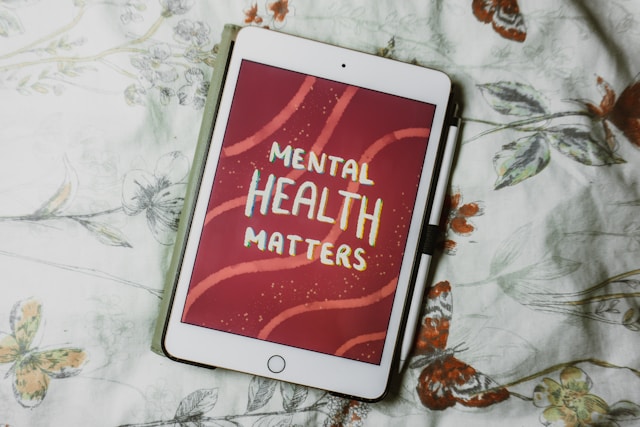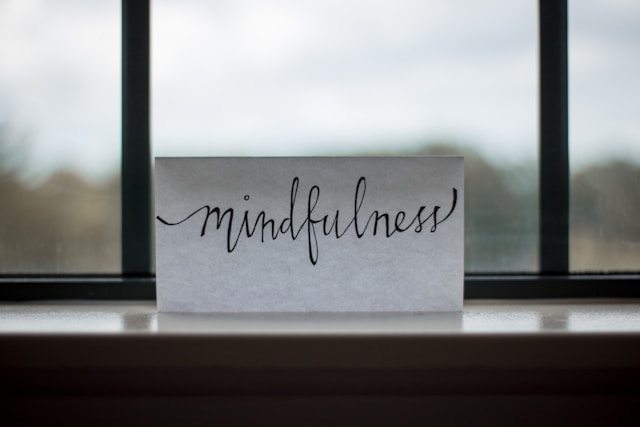Mindfulness and mental health have a deep connection. Understanding how they relate can improve your well-being.
Mindfulness is more than a buzzword; it is a powerful tool. Practicing mindfulness involves being present and fully engaged in the moment. This practice helps reduce stress, anxiety, and depression. It trains your mind to focus on the now, letting go of past regrets and future worries.
Many studies show that mindfulness can improve mental health. In this blog post, we will explore how mindfulness impacts mental health. We’ll look at the science behind it, the benefits, and simple ways to practice mindfulness daily. Discover how these mindful moments can lead to a healthier, happier life.
Mental Health Benefits
Mental health and mindfulness are deeply connected. Practicing mindfulness can have many benefits for mental well-being. Simple mindfulness exercises can lead to significant improvements in various aspects of mental health. These exercises help individuals become more aware of their thoughts and feelings. This awareness can reduce negative mental health symptoms.
Reduced Anxiety
Mindfulness can reduce anxiety. It involves focusing on the present moment. This practice helps break the cycle of anxious thoughts. Regular mindfulness sessions can calm the mind. They can also help manage stress better. Over time, individuals may notice a decrease in their overall anxiety levels. This can lead to a more peaceful and balanced life.
Improved Focus
Mindfulness can improve focus. By training the mind to stay in the present, distractions decrease. This can lead to better concentration on tasks. Improved focus can enhance productivity and performance. It can also make daily activities more enjoyable. Practicing mindfulness regularly can help maintain this enhanced focus.
Mindfulness Practices
Understanding the connection between mental health and mindfulness can transform your life. Mindfulness practices are simple and effective ways to improve well-being. They help reduce stress and increase focus. Let’s explore some core mindfulness practices.
Meditation Techniques
Meditation is a key mindfulness practice. It helps calm the mind and body. Different techniques can be used to meditate. Here are some popular methods:
- Guided Meditation: Follow a voice that guides your thoughts.
- Mantra Meditation: Repeat a word or phrase to focus.
- Mindfulness Meditation: Pay attention to your thoughts without judgment.
- Body Scan Meditation: Focus on different parts of your body.
Try these techniques to see which one works best for you. Consistent practice can bring peace and clarity.
Breathing Exercises
Breathing exercises are simple but powerful. They help control stress and improve mental health. Here are a few effective exercises:
| Exercise | Description |
| Deep Breathing | Inhale deeply through your nose, hold, and exhale slowly through your mouth. |
| 4-7-8 Breathing | Inhale for 4 seconds, hold for 7 seconds, exhale for 8 seconds. |
| Box Breathing | Inhale, hold, exhale, and hold each for 4 seconds. |
| Alternate Nostril Breathing | Close one nostril, inhale through the other, switch and exhale. |
These exercises can be done anywhere and anytime. They are a quick way to regain calm and focus.
Daily Mindfulness Tips
Incorporating daily mindfulness tips can significantly enhance your mental health. Mindfulness helps you stay present and focused, reducing stress and anxiety. Here are some practical tips to start integrating mindfulness into your daily routine.
Morning Routines
Start your day with a few minutes of mindfulness. This sets a calm tone for the day. You can do this by:
- Practicing deep breathing exercises.
- Engaging in a short meditation session.
- Taking a moment to stretch and feel your body.
Deep breathing helps you center your thoughts. Meditation encourages a peaceful mindset. Stretching wakes up your body gently and prepares you for the day ahead.
Mindful Eating
Mindful eating is another way to practice mindfulness. It involves paying full attention to the experience of eating and drinking. Here’s how you can do it:
- Eliminate distractions like TV or phones during meals.
- Take time to appreciate the colors and textures of your food.
- Chew your food slowly and savor each bite.
- Listen to your body’s hunger and fullness cues.
Mindful eating can improve your digestion. It also helps you enjoy your food more. You will likely make healthier food choices as well.
Mindfulness In Therapy
Mental health and mindfulness are closely linked. Mindfulness in therapy helps people focus on the present moment. It promotes awareness and acceptance of one’s thoughts and feelings. Therapists use mindfulness to treat various mental health issues.
Cognitive Behavioral Therapy
Cognitive Behavioral Therapy (CBT) often includes mindfulness techniques. CBT helps people change negative thinking patterns. Mindfulness helps clients observe their thoughts without judgment. This practice reduces anxiety and depression. It also improves overall mental well-being.
Acceptance And Commitment Therapy
Acceptance and Commitment Therapy (ACT) integrates mindfulness in its approach. ACT encourages people to accept their thoughts and feelings. Instead of fighting negative thoughts, clients learn to live with them. Mindfulness helps them stay grounded. This leads to better emotional regulation and a more fulfilling life.

Building A Mindful Lifestyle
Building a mindful lifestyle can significantly improve your mental health. It involves incorporating mindfulness practices into your daily routine. This can lead to a more balanced and peaceful life. Let’s explore two essential aspects of building a mindful lifestyle: Mindful Movement and Digital Detox.
Mindful Movement
Mindful movement is a key part of a mindful lifestyle. It includes activities like yoga, tai chi, and gentle stretching. These activities help you connect with your body and mind.
Yoga, for example, combines physical postures with breath control. This practice calms the mind and reduces stress. Tai chi involves slow, flowing movements. It improves balance and mental clarity.
Simple stretching can also be mindful. Focus on your breath and the sensations in your body. This creates a deep sense of relaxation.
Digital Detox
A digital detox involves taking a break from screens. This includes phones, computers, and tablets. Constant screen time can increase stress and anxiety.
Start with small steps. Set specific times to check your email and social media. Create no-phone zones in your home, such as the bedroom and dining area.
Use this time to engage in offline activities. Read a book, go for a walk, or spend time with loved ones. These activities can boost your mood and improve your mental health.
Consider a regular digital detox day. This can be once a week or once a month. Disconnecting from screens allows your mind to rest and recharge.
Frequently Asked Questions
What Is Mindfulness In Mental Health?
Mindfulness is being aware of the present moment. It helps reduce stress and improve mental well-being.
How Does Mindfulness Help With Anxiety?
Mindfulness helps you focus on the present. It reduces anxiety by lowering stress levels and calming the mind.
Can Mindfulness Improve Overall Mental Health?
Yes, mindfulness can improve overall mental health. It promotes relaxation, reduces stress, and enhances emotional balance.
Conclusion
Mindfulness deeply supports mental health. It reduces stress and enhances focus. Practicing mindfulness daily can bring noticeable improvements. This connection shows the power of being present. Mindfulness techniques are simple yet effective. They fit easily into busy lives. Embrace mindfulness for a healthier mind.
It’s a small step with big benefits. Start today and feel the change. Your mental well-being deserves it.


